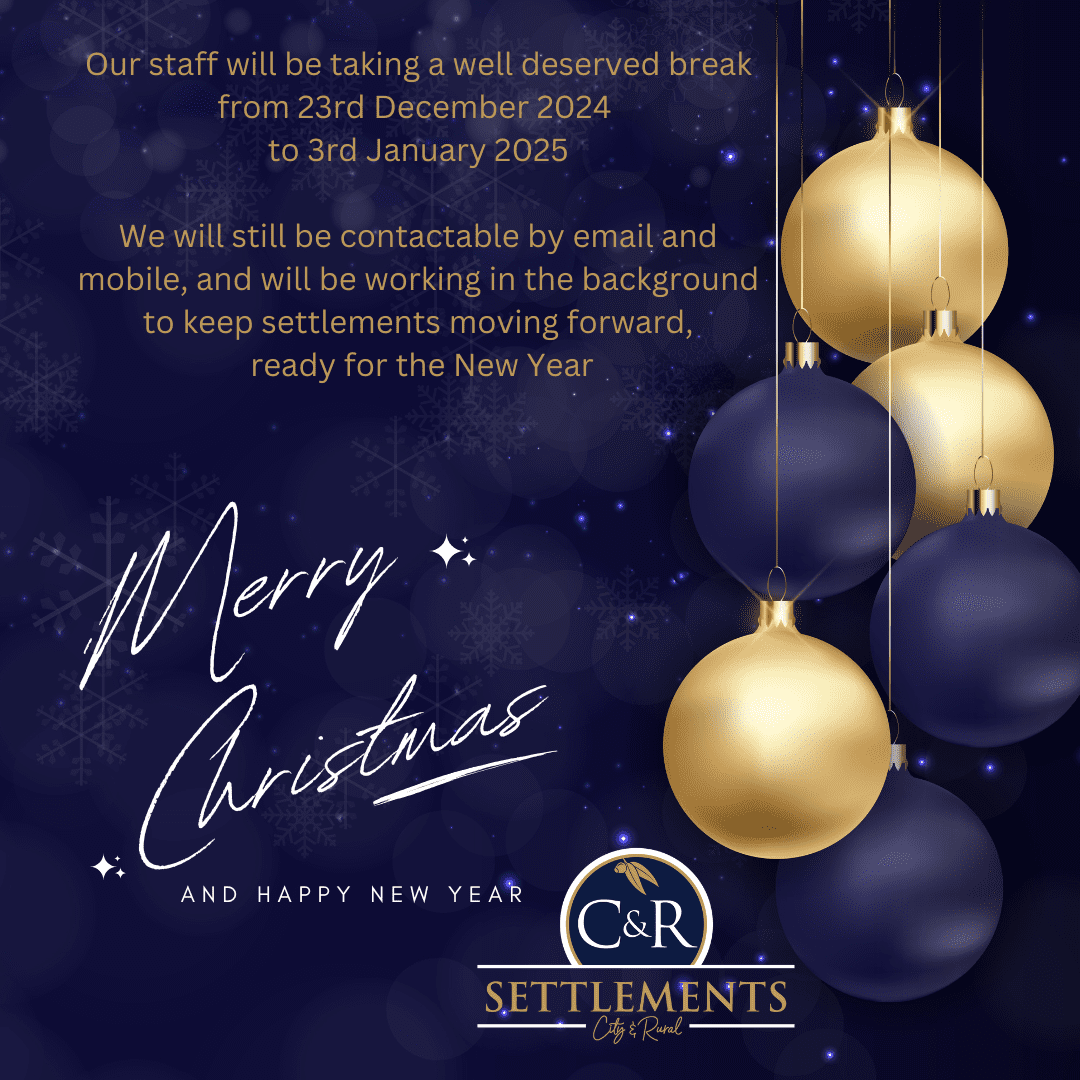Coping with the loss of a loved one is challenging, and grief is often overwhelming. Those named executors or administrators of a loved one’s estate, responsible for the sale or disposal of their property, might need some extra help. C&R Settlements understand how hard it is to cope with loss and how confusing managing an estate can be. Read on to learn more about what you need to do during this emotional time.
Confirm ownership of the deceased’s property
When dealing with a deceased person’s home or property, the first thing you need to do is determine who owned the property.
- Tenant: if they were in a rental property with no spouse or dependent still living in the home, you must hand it back to the real estate agent once you’ve removed the deceased’s belongings.
- Joint ownership (spouse): in most cases, the property transfers to the spouse without going through the courts. A copy of the Death Certificate is often required as proof of the death.
- Joint ownership (tenant in common): in this case, their share of the property becomes an asset of their estate. According to the Will or state legislation, it will eventually be either sold or transferred to the appropriate beneficiaries.
- Sole owner: in this case, the asset often forms part of the estate for distribution according to the Will (if one exists). An executor should check the Will to see if it includes specific instructions on distributing any real estate. An executor must ensure they meet the notice period requirements before any distribution of real estate assets. Failing to adhere to these requirements may result in claims against the estate, to which you may be personally liable.
- Rental property: if the deceased’s property is a rental, the lease agreement will continue between the tenant and the Executor or administrator. If the intention is to terminate the current lease agreements, you will need to provide tenants with the appropriate notice period as per their lease agreement. If the lease agreement ends during the estate administration process, you or the letting agent will need to contact the relevant real estate authority in your state to request their bond to be released.
Clear the home and list any assets (and their value)
If the person didn’t have a partner, spouse, or dependant living with them when they died, you can go ahead and clear their home. Keep in mind, before you remove any personal belongings, you need to take an inventory of the contents to help determine the estate’s value.
Value / sell the property (where applicable)
You must get a property valuation if it’s not owned jointly with a surviving spouse or joint tenant, whether it’s being sold or not. If the intention is to distribute the property to a beneficiary, its value is essential when determining an equitable and fair distribution of assets.
How to transfer property ownership of a deceased estate
A fundamental element of processing a deceased estate is a transmission application. This application permits the tenant to control property to transfer the deceased’s property to the relevant beneficiary or beneficiaries. C&R Settlements can prepare a transmission application in two forms – transmission by a devisee, next-of-kin or beneficiary, or transmission to Executor. You have the choice of submitting a transmission application form either electronically or in hard copy, in person. C&R Settlements have extensive experience in overseeing transmission applications, so don’t hesitate to contact us if you have any questions.
IMPORTANT
It’s imperative to ensure you publish the notice of intent to distribute before attempting to sell or dispose of the property. The notice of intent allows any creditors, other family members, or previous spouses to make a claim if they believe they may be entitled to an inheritance. Failing to publish a notice of intent may result in a claim against the estate, to which you may be found personally liable.
Choose C&R Settlements, your empathetic and compassionate settlement agents
We have all experienced losing a loved one, and we understand how challenging and frustrating it can be coping with making decisions during this difficult time. The C&R Settlements team is here to help you through the process of settling properties sales after the death of a loved one.
Contact us today for a settlement quote. We can help you through this challenging period. Our goal is to provide a stress-free settlement with outstanding customer service.


